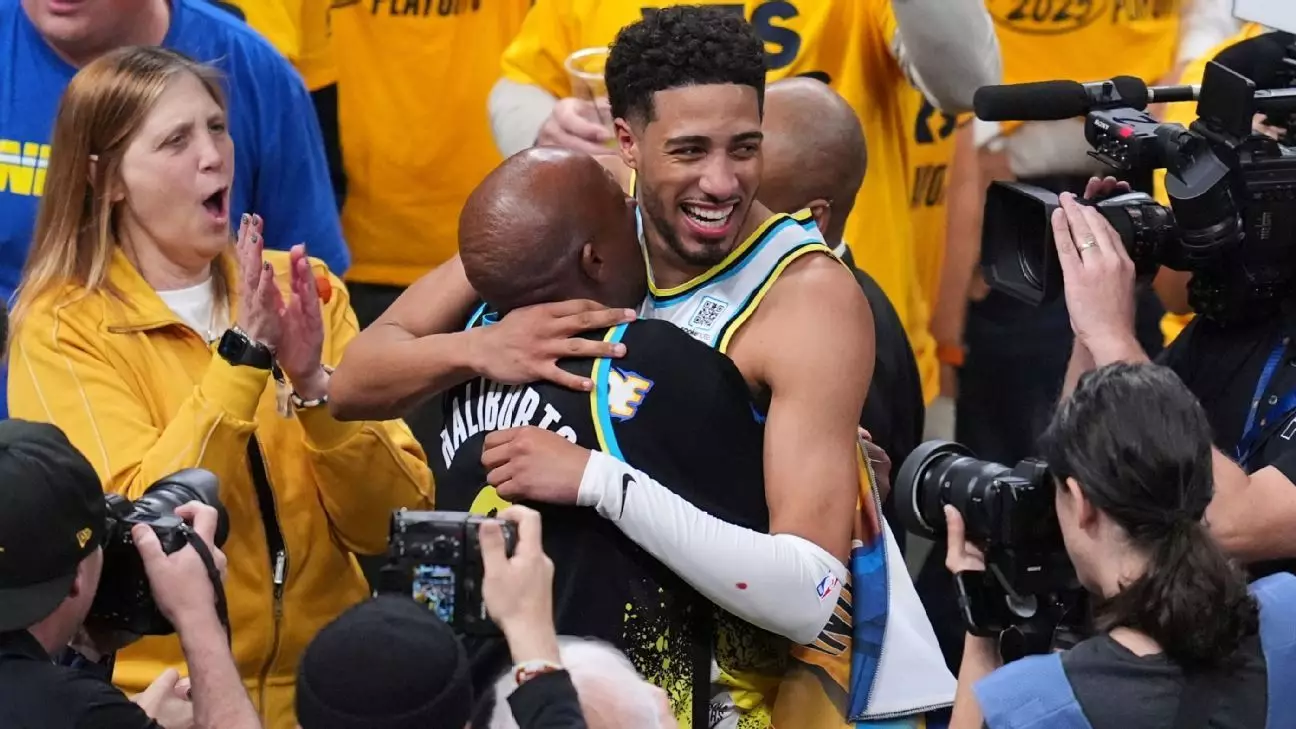In the intense world of professional sports, emotions run high, and moments of tension can spill over into unexpected territories. Recent events surrounding Tyrese Haliburton, a rising star of the Indiana Pacers, exemplify the influential role family dynamics can play in professional athletics. After a fierce first-round playoff series against the Milwaukee Bucks, a confrontation involving Haliburton’s father, John Haliburton, and Bucks star Giannis Antetokounmpo has put the spotlight on the importance of maintaining composure amid the thrill of victory.
The catalyst for this situation was a heated exchange that unfolded following a nail-biting Game 5, where a last-second layup by Tyrese secured the Pacers’ advancement in the playoffs. The jubilant atmosphere quickly soured as John Haliburton, seemingly caught up in the moment, approached Antetokounmpo with gestures and words that would later be deemed inappropriate. This confrontation not only raised eyebrows but also sparked a dialogue about the decorum expected, both on and off the court.
Emotions Versus Accountability
While emotions do form a significant part of the sporting experience, they are a double-edged sword. On one hand, they can fuel passion and drive performance; on the other, unchecked emotions can lead to regrettable incidents. Antetokounmpo, embodying the ideals of humility, publicly chastised the behavior, emphasizing the need to uphold respect in the midst of competition. His remarks resonate with a broader cultural expectation in sports whereby graceful conduct is heralded as a virtue, even in victory.
Following the incident, John Haliburton publicly acknowledged his misstep, expressing remorse for his actions. His decision to refrain from attending future games underscores a commitment to self-regulation and respect for the sport. It also raises a reflective question about the expectations placed on family members of athletes. Should they be spectators cheering from the sidelines or can they justify an emotional investment that sometimes leads to crossing into unsportsmanlike territory?
Lessons in Sportsmanship and Family Dynamics
Tyrese Haliburton’s response to the situation further exemplified the complexities involved when family intersects with professional sports. His early admission of parental accountability highlights the delicate balance athletes must maintain between familial support and professional conduct. Tyrese articulated that while it’s natural for family members to feel elation, it’s crucial to respectfully separate such feelings from the competitive arena.
In a world where every action can be scrutinized, the Haliburton incident serves as a reminder that emotional intelligence is as vital as athletic prowess. The younger Haliburton’s comments about allowing his father to step back and not let emotions dictate actions carry a profound implication—understanding limits and upholding the integrity of the sport is paramount.
As the Pacers look ahead to their upcoming playoff games, the narrative shifts from momentary lapses in judgment to the ongoing struggle for personal and collective integrity within the competitive arena. The journey through the playoffs isn’t just about winning; it’s also about embodying the spirit of sportsmanship, setting an example both for fans and for the next generation of athletes.

